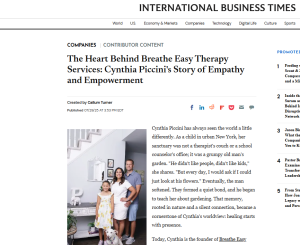Three years ago, we were told we had to stay inside because a highly contagious virus was on the loose.
We were asked to wear masks, some wiped down their groceries, and we just tried to avoid the coughs and sneezes of strangers.
We saw the emergence of heroes or found creative ways to see each other, even if it was just a video call.
We muscled through, but not without effects to our relationships and mental and physical health. Disruptions to our daily routines, uncertainty over the future, restrictions, sickness, worry, and job difficulties have all impacted our psyches.
Today, we are just now starting to understand the aftereffects of the Covid-19 pandemic.
Overall, research has shown that the pandemic and subsequent lockdown exacerbated symptoms for those already suffering with mental health issues.
Specifically, anxiety and depression increased, as did insomnia symptoms. Bipolar symptoms also increased partly due to economic and job difficulties (Del Casale et al., 2022). Researchers Del Casale et al. (2022) said the pandemic’s lockdown affected circadian rhythms, and as a result, many saw sleep disturbances and felt symptoms of depression (Del Casale et al., 2022).
Del Casale et al. (2022) also discussed the impact of psychotic and depressive symptoms and substance use dependence on abilities or desire to adhere to virus prevention measures. They found that anxious individuals or those diagnosed with mood disorders (such as depression or cyclothymic disorder – a less severe form of bipolar disorder) had more difficulty with restrictions which increased symptoms (Del Casale et al., 2022).
For adolescents and young adults, the pandemic meant an uncertain future. The National Institute of Mental Health (NIMH) released a study in January comparing the pre-and post-pandemic development of these subjects via brain scans. The study examined information from Californian students aged 13 to 17 who were part of a more extensive study. Specifically, Gotlib et al. (2022) examined anxiety, depression, and internalization of problems among this population.
Researchers found that adolescents reported more depression, anxiety, and internalizing of problems post-pandemic (Gotlib et al., 2022). Gotlib et al. (2022) scanned the brains of the participants, too, and found that the brains of the students post-pandemic were older and showed “features more typical of older people or those who experienced chronic stress or adversity in childhood” (NIMH, 2023, para. 6).
Additionally, this group showed brains with a thinning cortex and reduced volume in the hippocampus and amygdala. The cortex is linked to self-control, the hippocampus is related to memories, while fear and stress response regulation take place with the help of the amygdala (Gotlib et al., 2022).
Students were particularly affected by sudden school shutdowns, significantly limited social interaction, and exposure to family stress related to job insecurity and illness, Gotlib (2022) wrote.
Interestingly, data gathered via the World Health Organization/Europe’s collaborative Health Behaviour in School-aged Children (HBSC) study found that while Finnish teenage girls experienced increased loneliness and depression, 15-year-old boys were more optimistic and had a more positive outlook on the future than in previous years (WHO, 2023).
Parents of elementary school-aged children reported more behavior problems during the pandemic. Sun et al. (2022) examined child behavior problems defined as acting out behaviors such as aggression and hyperactivity and anxiety, depression, fearfulness, social withdrawal, and somatic complaints. They found that maternal response and pre-pandemic social skills directly influenced how children handled the challenges of day-to-day life presented by pandemic shutdowns (Sun et al., 2022). Following the pandemic, we are seeing children who are not only academically impacted but socially impacted as well.
Not surprisingly, individuals with solid coping mechanisms and social supports were generally positive and mentally healthy before and after the pandemic. The same can be said for children and adolescents.
This resiliency can be built partly through attention to the body’s fundamental sleep, nutrition, and exercise needs. Mental health needs to be addressed, and guided meditation, journaling, and breathing and relaxation exercises can all provide the framework for a healthy outlook. The Mayo Clinic outlines various ways to mitigate the pandemic’s effects. They point out the benefits of staying positive, keeping busy, getting help when you need it, and maintaining schedules and sleep patterns.
Therapy can also be a place to find the tools to help process increased anxiety and depression associated with the aftermath of a worldwide pandemic. Contact us here for more information on our services and how they can help.
References
Ciacchella, C., Campedelli, V., Veneziani, G., Pellicano, G. R., Sambucini, D., & Lai, C. (2022). Editorial: Impact of the Coronavirus Pandemic (COVID-19) on Mood Disorders and Suicide. Frontiers in Psychiatry, 13. https://doi.org/10.3389/fpsyt.2022.846112
Del Casale, A., Lai, C., Iannuccelli, A., Ciacchella, C., Veneziani, G., Ali, M., Zocchi, C., Bilotta, I., & Pompili, M. (2022). Pandemic experiences and psychopathological aspects in individuals with mood disorders and other mental disorders. Frontiers in Psychiatry, 13. https://doi.org/10.3389/fpsyt.2022.1039072
Gotlib, I. H., Miller, J. G., Borchers, L. R., Coury, S. M., Costello, L. A., Garcia, J. M., & Ho, T. C. (2022). Effects of the COVID-19 pandemic on mental health and brain maturation in adolescents: Implications for analyzing longitudinal data. Biological Psychiatry Global Open Science. https://doi.org/10.1016/j.bpsgos.2022.11.002
Mayo Clinic. (2022) COVID-19 and your mental health. https://www.mayoclinic.org/diseases-conditions/coronavirus/in-depth/mental-health-covid-19/art-20482731
National Institute of Mental Health. (2023) Covid-19 Pandemic Associated with Worse Mental Health and Accelerated Brain Development in Adolescents. https://www.nimh.nih.gov/news/research-highlights/2023/covid-19-pandemic-associated-with-worse-mental-health-and-accelerated-brain-development-in-adolescents
World Health Organization Europe. (2023) Finish Girls Mental health Deterioriated During Covid 19 Pandemic. https://www.who.int/europe/news/item/09-03-2023-finnish-girls–mental-health-deteriorated-during-covid-19-pandemic–new-data-show
Sun, J., Singletary, B., Jiang, H., Justice, L. M., Lin, T. J., & Purtell, K. M. (2022). Child behavior problems during COVID-19: Associations with parent distress and child social-emotional skills. Journal of applied developmental psychology, 78, 101375. https://doi.org/10.1016/j.appdev.2021.101375





